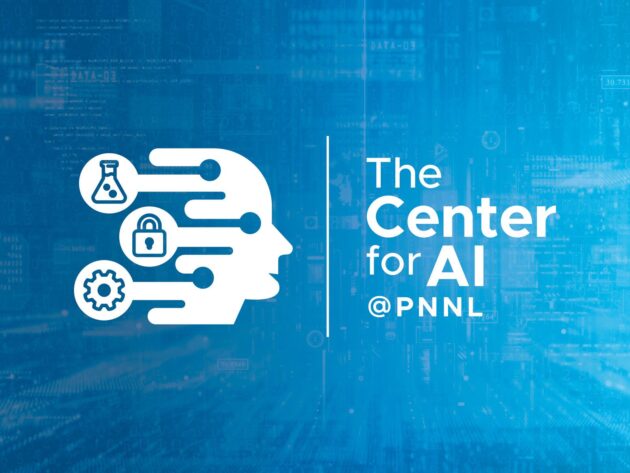
The Department of Energy’s Pacific Northwest National Laboratory is shining a brighter spotlight on artificial intelligence by creating the Center for AI @PNNL, but don’t expect the lab’s researchers to build a better chatbot.
Instead, the center is meant to advance AI applications that boost PNNL’s capabilities in its traditional focus areas, including scientific discovery, national security and energy resilience.
“The creation of the Center for AI @PNNL will leverage and amplify these capabilities for even greater impact in service of our nation,” PNNL Director Steven Ashby said today in a news release.
Today’s announcement coincides with the annual Conference on Neural Information Processing Systems, or NeurIPS, which is taking place this week in New Orleans. The center’s creation serves as encourage evidence that AI tools are rapidly transforming a wide range of scientific and technical fields.
“The time is right for PNNL to focus its AI-related efforts,” said Court Corley, PNNL’s chief scientist for AI and director of the new center. “The field is moving at light speed, and we need to proceed quickly to keep PNNL at the frontier.”
Researchers at PNNL in Richland, Wash., are already taking advantage of AI to expect the course of hurricanes and wildfires, design new types of antiviral drugs, improve the operation of the nation’s electrical grid, build the next generation of batteries and protect against nuclear proliferation.
Four years ago, PNNL joined forces with other institutions in a collaboration to progress core technologies for AI applications — and that work is continuing.
The newly created center’s mission calls for fostering the development of an AI-ready workforce, deploying AI for daily operations at PNNL and exploring how humans and AI programs can best work together.
Scientists at the Center for AI @PNNL will also work closely with the Department of Energy’s Office of Critical and Emerging Technology for the development of a national AI capability to progress safe, ensure and trustworthy AI.
“AI is such an integral part of the landscape at PNNL that it’s difficult to find an area that AI hasn’t touched,” Corley said. “With so much happening, it’s crucial to make collaboration easier and for people to come together to progress a lab-wide strategy to improve everyone’s efforts.”

